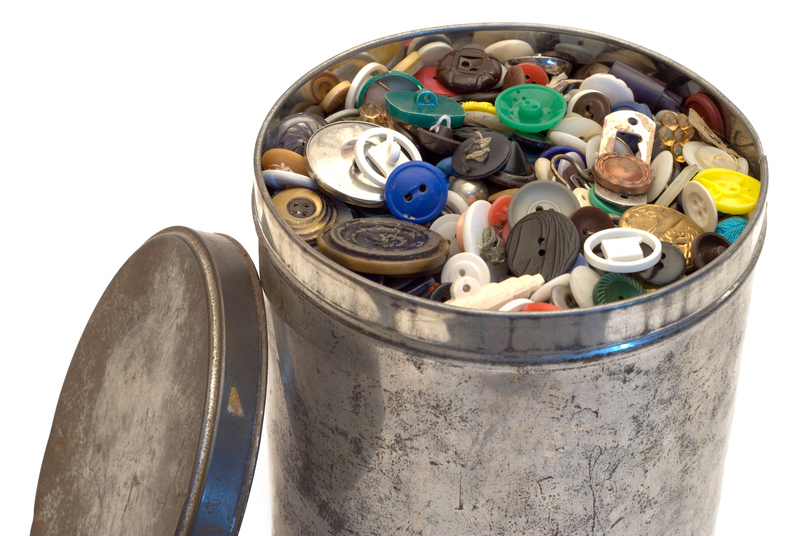Toward Tranquility: The Healing Power of a De-cluttered Environment
Imagine stepping into a space where every item has its place, natural light streams in, and an instant sense of calm washes over you. This is the true essence of a de-cluttered environment--one that promotes healing, focus, and tranquility. In our increasingly chaotic world, the importance of creating serene spaces cannot be understated. In this in-depth article, we'll explore the healing power of a decluttered environment, how clutter impacts your physical and mental well-being, and practical strategies to transform your living and working spaces.

Understanding the Relationship Between Clutter and Well-Being
It's no secret that our surroundings directly influence our mental state. Clutter isn't just a visual nuisance--it can also weigh heavily on your emotional and cognitive health. Numerous studies link cluttered environments with increased levels of stress, anxiety, and even depression.
- Mental Clarity: Clutter can overload our senses, making it difficult to focus and process information. A tidy space fosters mental clarity and boosts productivity.
- Emotional Balance: Excess belongings can trigger feelings of guilt, frustration, and overwhelm. Letting go of unused items can evoke a sense of freedom and emotional relief.
- Physical Health: Clutter attracts dust, mold, and allergens, potentially leading to respiratory issues and other health problems. A decluttered environment is easier to clean and healthier to inhabit.
- Sleep Quality: Studies have shown that people who maintain organized spaces enjoy better sleep. A clutter-free bedroom supports restful and restorative sleep cycles.
The Science Behind Clutter and Stress
Neuroscience and psychology underscore how organizing your space can translate to peace of mind. Clutter bombards our minds with excessive stimuli, forcing our brains to work overtime. This overstimulation elevates cortisol--the stress hormone--which can have far-reaching consequences, from increased anxiety to a weakened immune system.
According to a study from Princeton University Neuroscience Institute, people who work in an organized environment can process information more efficiently and enjoy heightened focus. This is vital not just for personal well-being, but also for overall productivity and creativity. When our surroundings are clear, our minds can relax. And when our minds are relaxed, healing and growth can begin.
Decluttering for Tranquility: Benefits Beyond the Physical
Restoring Balance in Daily Life
One of the most profound aspects of a clutter-free environment is its ability to restore balance in daily life. By shedding non-essential belongings, we make room--both literally and metaphorically--for what truly matters. This enables greater appreciation for the things and people that enrich our lives.
- Enhanced Mindfulness: A serene setting allows for moments of reflection and fosters gratitude. Minimalist environments promote living in the present moment, free from unnecessary distractions.
- Improved Relationships: Less clutter means more space and time to connect with loved ones. It creates a welcoming atmosphere, conducive to meaningful interactions and shared experiences.
- Greater Self-Efficacy: Taking ownership of our space, organizing, and maintaining orderfulness, reinforces a sense of control and autonomy.
The Ripple Effect: How a Clean Space Influences Other Life Areas
Decluttering acts as a catalyst for positive change. As you witness the transformation in your living space, you may find a renewed interest in other areas--finances, career, health, or personal growth. This ripple effect is rooted in empowerment: if you can tackle clutter, you can tackle anything.
Moreover, the symbolism of decluttering is powerful. It signals a willingness to let go of the past and move confidently toward the future. This process nurtures self-acceptance and opens the door to new opportunities.
How to Declutter: Strategies for Achieving a Healing Environment
Step One: Set Your Intention
Decluttering isn't just about getting rid of "stuff." It's about setting an intention for how you wish to live and feel in your home or office. Reflect on what tranquility means to you. What are your goals for your space? Is it relaxation, productivity, creativity, or all of the above?
Step Two: Start Small, Dream Big
The process can feel overwhelming at first, especially if clutter has accumulated over many years. Start with a single drawer, shelf, or corner. Celebrate small victories and use them as momentum to tackle larger areas. Remember, every item thoughtfully removed is a step toward tranquility.
Step Three: The Four-Box Method
One effective and simple approach to decluttering is the Four-Box Method. Label four containers: Keep, Donate, Discard, and Relocate. As you sort through your belongings, place each item in the appropriate box. Be honest with yourself about what you truly need or cherish.
- Keep: Items you use regularly and love.
- Donate: Things still in good condition but no longer needed.
- Discard: Broken, outdated, or unusable items.
- Relocate: Items that belong elsewhere in your space.
Step Four: Create Zones for Functionality
Organizing is much easier when every item has a designated "home." Consider the different activities that occur in each room. Create zones--whether for work, relaxation, or hobbies--so that everything is intuitive and accessible.
Step Five: Prioritize Surfaces
Flat surfaces tend to attract clutter--desks, counters, and nightstands can quickly become dumping grounds. Make a habit of keeping these areas clear. Return items to their proper places at the end of the day to maintain the tranquility you've achieved.
Tips for Maintaining a Healing, Decluttered Home
Routine Tidying
Maintenance is key for serenity. Allocate a few minutes each day or week to tidy up. Regular upkeep prevents the accumulation of messes and reinforces *your commitment to a healing environment*.
Mindful Consumption
Before making new purchases, consider whether the item will genuinely enhance your life. Ask yourself:
- Does this serve a purpose?
- Do I already own something similar?
- Will this contribute to my peace and well-being?
Adopting mindful shopping habits is essential for preserving a decluttered lifestyle.
Seasonal Refreshes
Our needs and preferences evolve over time. Set aside time each season to reassess and refresh your space. Let go of items that no longer align with your goals or style, and enjoy the feelings of lightness and renewal.
Incorporate Calming Elements
Enhance your decluttered rooms with elements that promote relaxation and joy. Consider adding:
- Plants: Bring life indoors and improve air quality.
- Soothing Colors: Soft blues, greens, and neutrals encourage calmness.
- Natural Light: Open curtains and use mirrors to reflect sunlight.
- Meaningful Art: Display pieces that uplift and inspire you.
The Transformative Power of Minimalism in Decluttering
Minimalism isn't about living with nothing; it's about living with intention. Embracing a minimalist approach to decluttering involves asking deeper questions about what truly enriches our existence. The result is an environment designed for healing and rejuvenation, where nothing distracts from moments of joy, stillness, and connection.
- Aesthetics: Minimalist design highlights simplicity, functionality, and beauty. Your eye is drawn to what matters most.
- Resilience: Learning to let go of the unnecessary builds emotional resilience and adaptability.
- Eco-Friendly: Consuming less supports sustainability and reduces environmental impact.
By focusing on intentional living, you not only create peaceful surroundings but also foster inner harmony.
Decluttering and Digital Wellness
In our digital age, clutter isn't limited to physical items. Digital clutter--unread emails, app notifications, and social media overload--can be just as draining. Declutter your digital environment by:
- Unsubscribing from unnecessary emails
- Organizing files and deleting duplicates
- Turning off non-essential notifications
- Establishing tech-free times or zones in your home
By creating digital boundaries, you extend tranquility beyond your physical surroundings, enhancing overall wellness.
The Role of Decluttered Spaces in Holistic Healing
Many wellness disciplines recognize the profound impact of the environment on our health. Feng Shui, for example, emphasizes harmonious arrangement to maximize energy flow, while biophilic design integrates nature to foster a sense of calm and vitality.
Whether you subscribe to these philosophies or simply seek a tidier space, the result is the same: a decluttered environment supports holistic healing, both inside and out. It paves the way toward tranquility by nurturing all aspects of your well-being--mental, emotional, physical, and spiritual.

Decluttered Living and Mindful Habits: A Lasting Partnership
Once you've realized the healing power of a decluttered home, it becomes clear that the benefits extend far beyond the visual. You develop habits of awareness, gratitude, and mindful living. These practices build resilience and help you navigate life's inevitable stressors with greater ease.
Practical mindful habits include:
- Regular check-ins with your space: What is serving you?
- Practicing gratitude for essentials
- Setting daily or weekly intentions for order and relaxation
- Pausing to enjoy moments of peace within your organized environment
Conclusion: Embrace Tranquility Through the Power of Decluttering
Clutter, in all its forms, erodes our sense of calm and detracts from happiness. A decluttered environment serves as a sanctuary--a place for healing, renewal, and creativity. The path toward tranquility begins with one simple act: letting go.
By incorporating the strategies in this guide, you can harness the healing power of a decluttered home or office and enjoy the lasting rewards of peace, productivity, and wellness. Let your space reflect the calm you seek, turning every day into an opportunity for serenity and self-care.
Start your journey toward tranquility today--one drawer, one shelf, one mindful decision at a time.



